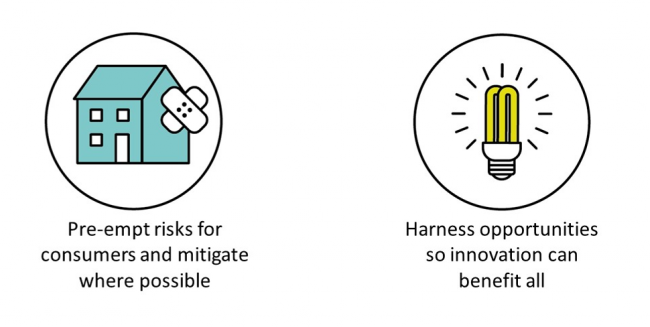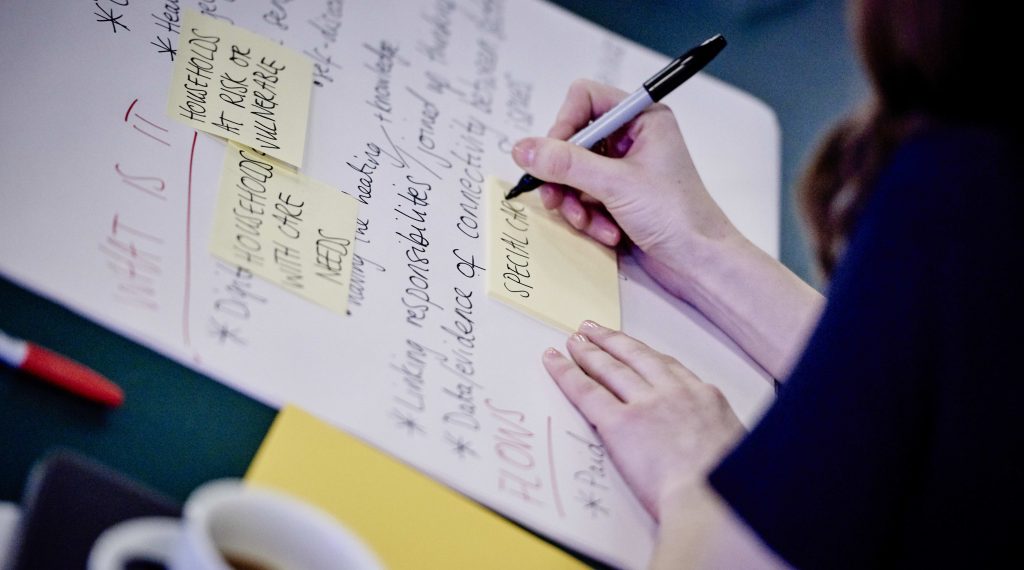
As decarbonisation and digitalisation change the way that people use and buy energy, the situations that make households vulnerable to adequate affordable energy today may be different to the situations of tomorrow. The households we consider fuel poor today may be different to the ones we consider in 30 years.
Consumers in vulnerable situations are part of the energy market as any other energy consumer but they are rarely thought of as customers of new products and services. Designing effective support for them through policy and regulation is essential but so is including the needs of these households in the design of the energy innovation. There is substantial scope to harness new technologies and service propositions to deliver better outcomes to consumers, including fuel poor and vulnerable groups with specific needs.
But how do we do this? How do we even get started? How do we build a fair energy future?
We will need to do two new things…….


Fair Futures focuses on how innovation can be used to better understand the issues faced by vulnerable energy consumers and to identify the areas where commercial, governmental, community and household needs and motivations could be aligned to provide more effective policies, products and services.
To understand how to design and deliver services to consumers facing difficulties with low household incomes and the high cost of adequate energy in their homes, Fair Futures is trying to better understand what people in vulnerable circumstances need and want from energy in their home. The best way to demonstrate that new innovations will work for vulnerable households is to design it with them.
There is a risk that some consumers in vulnerable situations – with health conditions, on low incomes, without access to the internet, or who speak English as a second language for instance – may not benefit or could even be harmed as decarbonisations and digitalisation happens. For example, 9% of people have never used the internet, 13% of people don’t have access to the internet and 20% don’t have broadband, so despite the many benefits of smart heating, we need to ensure emerging digital systems are not a barrier to accessing energy.
With greater insight of vulnerable customers’ needs and challenges, organisations will be able to explore the opportunities for innovation that enable people to access the energy they want and develop new products and services.
This could decrease the risk of undertaking in innovation, for both businesses and consumers, and could be applied to developing new propositions, improving customer handling procedures and meeting new policy obligations and changes.
Contact us if you want to be involved in ensuring the future energy system works for everyone through new policies, products, services and strategies.
Come and see us for a friendly
chat over a cuppa.
Cannon House, 18 The Priory Queensway
Birmingham B4 6BS8
We love small print. Said nobody, ever.